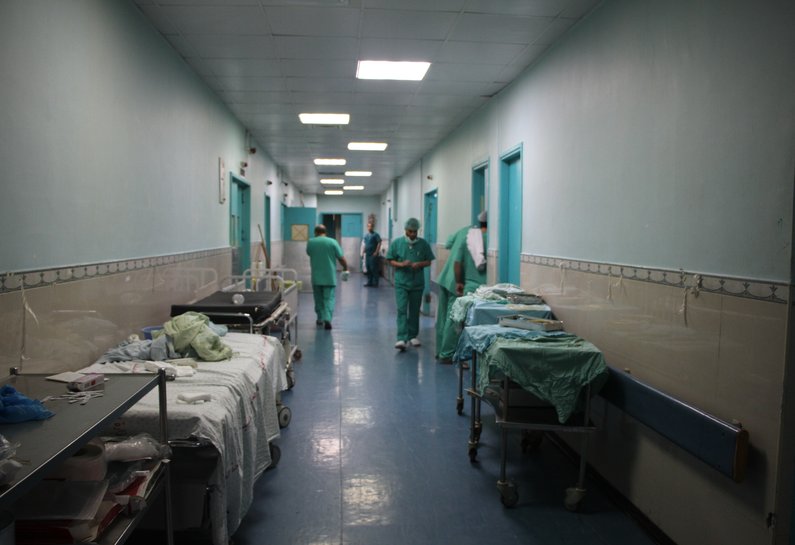UN warns essential services on verge of shutdown in Gaza as emergency fuel running out

Medical Aid for Palestinians (MAP) is concerned about the potential impact of current fuel shortages on the provision of healthcare in Gaza. With no mains electricity for 16-20 hours per day, hospitals are reliant on backup generators to keep the lights on and medical machines running. Current shortages therefore endanger essential services and therefore patients' lives, including neonatal intensive care - a service supported by MAP in Gaza.
The Ministry of Health in Gaza has reported that funding for emergency fuel is set to run out in less than a month unless new funding is secured. The crisis affecting the provision of health services is further compounded by the mass trauma casualties which have entered hospitals in the context of Israel's use of force against protesters taking part in the "Great March of Return" since 30 March.
It is imperative that international donors, including the UK, step in immediately to keep Gaza's health system running. In the long-term, they must also work towards sustainable solutions to the electricity crisis, including through a lifting of Israel's 11-year closure. The UN estimates that US$4.5 million is required to cover humanitarian fuel costs until the end of 2018.
You can read the UN Office for the Coordination of Humanitarian Affairs statement in full here:
Jerusalem, 22 July 2018
Supplies of emergency fuel provided by the UN for critical facilities in Gaza are being fast depleted, the Humanitarian Coordinator, Mr. Jamie McGoldrick, warned today. He called on Israel to end restrictions preventing the import of fuel and for donors to provide immediate funding for emergency fuel, currently set to run out in early in August.
“At least one hospital has been forced to shut down for a few hours, and services are being dramatically reduced at others,” said Mr. McGoldrick. “Given ongoing blackouts of about 20 hours a day, if fuel does not come in immediately, people’s lives will be at stake, with the most vulnerable patients, like cardiac patients, those on dialysis, and newborns in intensive care, at highest risk.”
According to WHO, Al Quds Hospital, which provides life-saving medical interventions for 150,000 people per year, including major surgeries, deliveries and intensive care will be forced to shut down in coming days due to lack of fuel, with another four hospitals likely to run out within the next three days, thus significantly reducing provision of essential medical services to the population in Gaza. The Palestinian Ministry of Health already has implemented strict contingency measures: hospitals have reduced diagnostic, sterilization and cleaning services, increasing the risk of infections amongst patients. Elective surgeries are being further reduced. Over 7,000 elective surgeries have been postponed in recent months due to the mass trauma casualties and low resources available to cope with the demand.
At highest risk, currently, are over 2,000 patients in Gaza’s hospitals, who rely on electrical devices, including neonates in incubators. Over 1.27 million people will be directly affected by the closure of the hospitals and reduction in provision of vital health interventions. Additionally, the reduced functioning of water and sanitation facilities risks an increase of waterborne disease and outbreaks. At present, water and sanitation facilities are rationing available fuel supplies, which will be exhausted by the end of July, if fuel imports do not resume. In addition to further reductions in water supplies, this would also potentially lead to sewerage overflowing into inhabited areas, entailing grave public health risks. Funding for emergency fuel will run out for all critical facilities in early August, with US$4.5 million required to cover fuel supplies through the end of the year.
“Until more sustainable solutions for the electricity crisis in Gaza are found, two steps can avert further devastation in Gaza in the short term,” said Mr. McGoldrick. “Israel must let fuel and other essential supplies in and donors must mobilize resources to ensure that critical facilities receive the fuel they need.”
Related content


